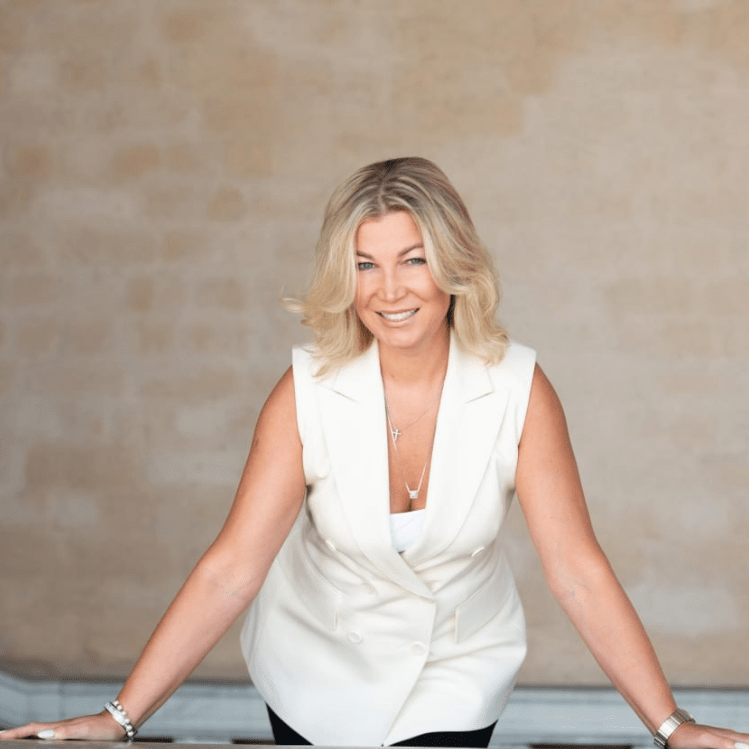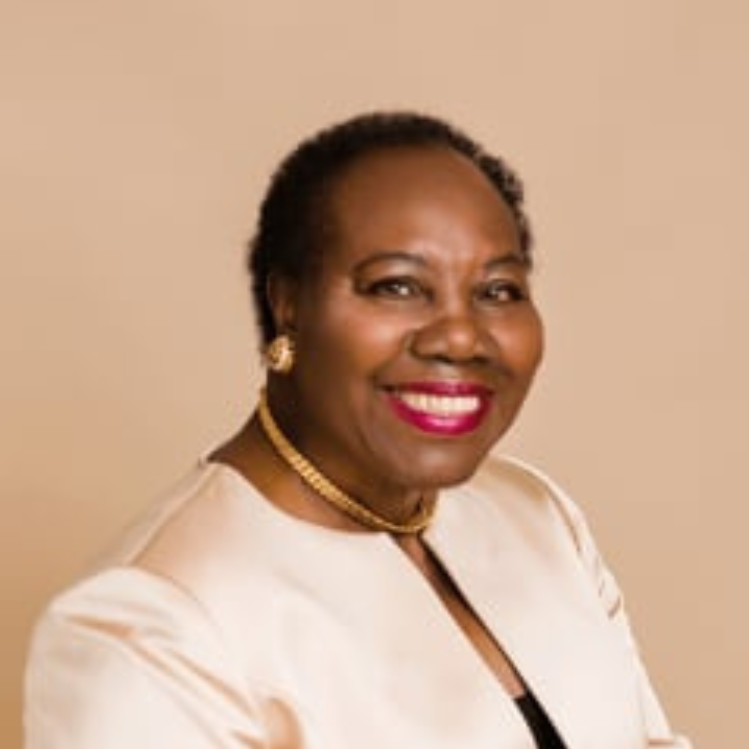
Pioneering Transformation: The Journey of a Health Visionary
With a background spanning from humanitarian work to athletic excellence, followed by a shift into academia and healthcare, she amassed over three decades of expertise in managing various forms of diabetes. As the driving force behind Health & Mental well-being, she’s committed to empowering individuals aged 45-65 with strategies to combat diabetes complications. Through her roles as author, speaker, coach, and lecturer, she spreads her message of service, authenticity, and passion, aiming to impact 5 million lives with the transformative power of education and support. Her unwavering belief in the potential for everyone to achieve and maintain optimal health underscores her mission.
Can you share some pivotal moments from your early life that influenced your journey toward becoming a healthcare expert and entrepreneur?
Finding my purpose at an early age from life’s task, beginning as a member of the British Red Cross Society at school in my earlier years, has influenced my journey towards becoming a healthcare expert and through entrepreneurship. Found that it is widely accepted that delivering healthcare in the twenty-first century requires the adoption of innovations to improve the efficiency of healthcare delivery. I have learnt that we need to ensure we are equipped with the right knowledge and skills; to face the challenges of becoming a healthcare expert and through entrepreneurship. Healthcare professionals have a unique insight into both charts and organizational needs; therefore, we are best placed to identify problems and develop solutions to serve these problems; adequate training will inspire one to develop the appropriate skills which will be crucial in their future professional care.
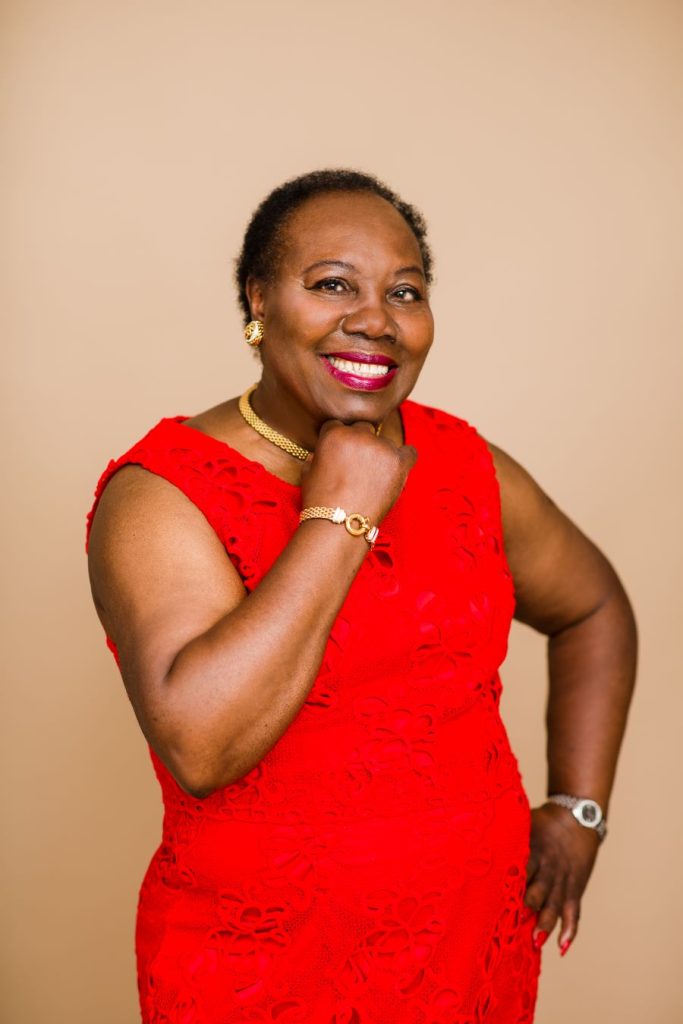
What inspired you to transition from teaching to pursuing a career in Nursing and Midwifery?
As a child I was admitted to the hospital for a procedure of tonsillectomy; as a child, I was extremely nervous and terrified of what was happening to me. The nursing staff knew how to comfort me, during those years have inspired me to be a nurse to be able to have the opportunity to provide care and comfort to the standard that I had experienced, personal experience; the opportunity for personal growth, and developmental skills, with the desire to make a difference to every life that I have touched, working in a collaborative healthcare environment.
Making a difference in people’s lives is one of the most gratifying aspects of being a nurse and is the opportunity to positively impact patients’ lives. As a nurse one can provide care, support, and education to parents, and their families, helping them to navigate their health challenges. Nursing offers a wide range of career paths, from traditional bedside nursing to specialized roles, one can choose from various work settings, such as hospitals and clinics. Nursing is a profession that requires continuous learning and professional development. Nurses must stay up to date to provide the best possible care. The demand for nursing and midwifery is growing. The Bureau of Labor Statistics projects a seven percent growth in registered nursing jobs between twenty twenty-one and twenty-thirty.
The broader aspect is because of my passion and long-life learning and professional development. I was inspired to become a midwife after witnessing the exceptional care a very close family received during a home delivery birthing her baby. The midwife who cared for her demonstrated clinical expertise, incredible empathy, and kindness. The support was outstanding and significantly impacted me and our family during this time. That was the moment I decided that the field of nursing and midwifery is my professional vocation; to enable me to provide the same level of support, and compassionate care to others in their time of need. My academic achievements and commitment to learning enable me to embark on some popular nursing career paths, in clinical nursing midwifery and senior management roles.
How have your educational background and diverse qualifications shaped your approach to healthcare and management?
My educational background and diverse qualifications have helped me tremendously in shaping my career path and approach to healthcare and management studies. At a very young age, my mother had been instrumental in instilling in me values that inspired my educational path. She started by enrolling me into private education at a very early age, with encouragement to bring the best out of everything I do with that mindset that has always inspired me to be the best of everything; to be a role model to my younger siblings, and to make my mother proud. My educational background and diverse qualifications have shaped my approach to healthcare and management.
Could you elaborate on your expertise in Type 2 Diabetes, Pre-Diabetes, and Gestational Diabetes, and how you’ve applied it in your professional endeavors?
As a Nurse with a first degree and midwife with a certified master’s degree in midwifery, and specialist training in preterm babies born to mothers of gestational diabetes, during my work have seen the devastation that these conditions have caused to parents, families, and siblings. Having put me in a position with over thirty-five years of experience and clinical knowledge working firsthand in the clinical field has positioned me in a good position to help the individuals affected by these diseases. My mission is always to serve individuals and to add value to their lives, and always aim to be a leader that provides benefit and value to those who I encounter.
Let’s start the journey of pre-diabetes: this is an indication that you have a medical diagnosis of pre-diabetes, this is an indication that you have impaired glucose tolerance, meaning that your blood (sugar) known as glucose in your blood is raised beyond the normal range but, it is not so high that you have diabetes! However, if you are diagnosed you are at risk of developing type 2 diabetes if you don’t act; you can control your health and prevent the onset of type 2 diabetes. Between 1 in 3 out of every 4 people with prediabetes, fifty percent will develop diabetes type 2 within ten years; by this time, you have reached a point of no return which means the condition cannot be reversed, the next course of action is to be treated with medication, which is current practice to manage the disease.
Pre-diabetes and type 2 diabetes can be reversed by acting. You don’t have to be one of those statistics if you act and work with a professional expert in the field of diabetes to help you reverse this condition.; There is no cure for diabetes. Research for preventing serious conditions from occurring is currently ongoing.
Gestational Diabetes mellitus known as (GDM) is diagnosed only during pregnancy and may or may not persist after the baby is born. Women with gestational diabetes may feel extremely anxious, overwhelmed, or even guilty and may worry about the baby’s health. This worry is understandable. However, it is important to be aware that most babies born to mothers with gestational diabetes are perfectly healthy and they will not be born with diabetes. However, these babies will be managed very closely by monitoring their blood glucose and early feeding, to prevent hypoglycemia in the newborn.
The main risk factors of gestational diabetes are associated with delivering a large baby, and the mode of planned delivery by cesarean section is discussed with parents, and informed consent is obtained to prevent birth complications. The baby has more chances of spending time in the intensive special care baby unit for observations of breathing. gestational diabetes occurs in five to twenty percent of pregnant women.
Clinical guidelines recommend that gestational diabetes (GDM) during pregnancy be tested between twenty-four weeks and twenty-eight weeks, the woman is cared for during pregnancy by the multi-disciplinary team’s obstetrician, medical endocrinology, and diabetic education team, to develop a meal plan and blood glucose. The woman and her partner are encouraged to attend antenatal session monitoring. with healthcare teams to help understand how best he or she can provide support. Learning relaxation techniques and mindfulness may help reduce stress, most importantly, must be assured that women with gestational diabetes (GDM) can have healthy pregnancies and healthy babies.
It is important if you have (GDM) you have a six to eight weeks puerperium follow-up to assess if diabetes has disappeared, and an assessment of the baby. If planning a future pregnancy, it is essential to be screened for gestational diabetes before the next pregnancy, as gestational diabetes mellitus can increase your chances of developing type 2 diabetes later on.
As the CEO & Founder of Health & Mental Wellbeing, what motivated you to focus specifically on empowering individuals aged 45-65 with strategies to prevent diabetes complications?
As the CEO & founder of Health & mental wellbeing, what motivated me to focus specifically on empowering individuals aged 45- 65 is to educate individuals on awareness of type 2 diabetes which is one of the fastest-growing International Health Challenges in the world. Without careful management, it will be one of the most devastating diseases. It is a significant personal and economic cost to the Healthcare system if not properly managed. Researchers reported that type 2 diabetes is a real financial burden on the Health Organizations Worldwide costing approximately 387 million by individuals living with the disease: mostly dealing with the consequences of the disease. Diabetes doesn’t choose which individuals, whether they are rich or poor, it’s everybody’s problem; researchers have reported without careful management diabetes will be the most devastating disease of this century affecting 1:16 daily.
Every 17 seconds someone in the world is diagnosed; with strategies to prevent diabetes complications. Acting to change the world tomorrow, highlighting the need for affording healthy food, as an essential factor in reducing the Global burden of diabetes. Screening people above 45 years reduces the risk. The main impact of the age profile is therefore on the type of demand we face, since older people have a higher incidence of chronic diseases. By the age of 65 nearly two-thirds of individuals have developed at least one long-term condition. Helping with encouraging people to live a healthier happier lifestyle, weight management, and physical activity; and empowering them to take control of healthy living can increase lives by ten years longer; as educators, they play a pivotal role in providing reliable and accurate diabetic education leading to better care and dispelling the stigma and misconceptions regarding diabetes.
Research has shown that for some people getting support to make changes to their lifestyle including healthy eating, moving more, and losing weight, can help reduce their risk of developing diabetes, it also states vascular dementia is around 11% among 65 years and over. Another complication is an increased incidence of impotence among men, which has ill effects on family life and the man’s self-esteem; gets worse over time: creating distance between partners, and family breakdown, leading to cases of depression in men. Better health and better care of their health provide individuals with an opportunity to face these challenges.
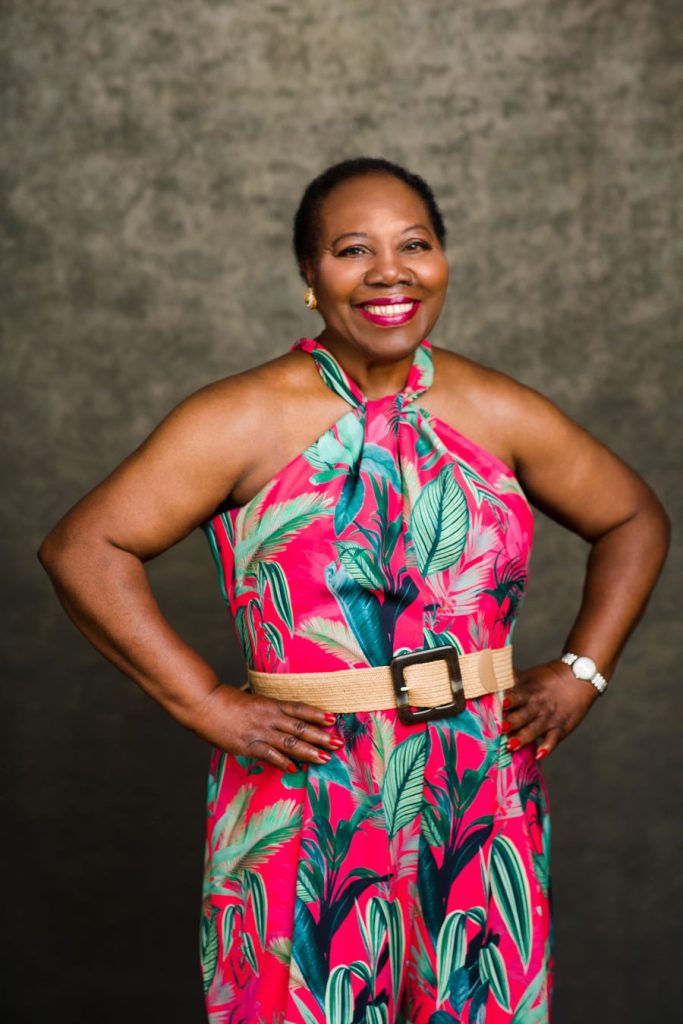
What led you to delve into writing, speaking, coaching, and mentoring, and how do these roles align with your mission?
To spread my message to reach a global audience, I have concentrated on writing articles in magazines, and social media leaflets, my one-to-one mentoring, and group coaching one to many give me a bigger audience to spread my message. I hope to make a Global difference in individuals’ lives through public speaking. My mission is to reach five million people in five years through my public speaking; Global Woman Club has given me a bigger platform to which I can share my message to the world.
Can you elaborate on your experience as a lecturer in Health and Social Care, and how it contributes to your advocacy efforts?
As an educator, my passion has always been to serve, and help, as a lecturer in Health and Social Care. We live in a diverse society therefore one must be mindful of good quality and diverse practices by providing services to individuals that are fair and accessible to everyone. Ensuring that individuals are treated as equals, get the dignity and respect that they deserve, and that their differences are celebrated. Working with individuals from different cultures requires an open-minded attitude; one learns to respect and value diversity, embracing different perspectives, which often requires flexibility to accommodate cultural differences and workstyle; and encourages good working partnerships.
During my career, I have participated in projects that required cross-functional collaboration with teams from different countries. This experience taught me how to effectively communicate and build relationships, getting interpreters when necessary. This experience has taught me how to effectively communicate with individuals from different cultures, enabling me to gain an understanding of cultural differences that have helped to build trust and respect with diverse team members, Advocacy provides a partnership with the individual you support, promoting social inclusion, equality, and social justice. working in partnership with commissioners to develop consistent and robust outcomes, supporting understanding of the impact of advocacy for individuals, for health and social care, and the wider community.
Being awarded the global Woman Ambassador for women’s health is a significant achievement. How do you leverage this platform to further your mission?
The award of the Global Woman Ambassador for Women’s Health is a prestigious recognition of my contribution to women’s empowerment. To optimize the health of all women we need to tackle the disparities in health outcomes arising from race, ethnicity, and socioeconomic factors. The first step is to understand the burden of the problem facing women from across different areas and for specific conditions; we need to identify those women at risk of ill health early, and target interventions to prevent complications. Moreover, complications with diabetes in pregnancy with mothers with gestational diabetes in pregnancy adversely affect babies in the long term. This inter-gestational impact on women’s health.
My mission is to close the gender health gap on topics like menopause, and type 2 diabetes. According to the World Economic Forum’s Global Gender Gap Report 2022, stress levels were four percent higher in women than in men. Am a believer that when you get it right for women, the whole of the rest of the world benefits. The focus is going to be first to look at these areas of health and well-being that affect almost every woman’s life. Therefore, all the common things that we don’t talk about so often. Menopause has suddenly been airing in the public domain again, and I want to be able to do that for all affected women., working with organizations to enable all women to feel supported in the workplace and reach their full potential at work.
Could you share some insights into your coaching approach and how it has enabled clients to reverse pre-diabetes?
Coaching styles are well established in many areas of life as a powerful vehicle for increasing performance, achieving results, and optimizing personal effectiveness, Coaching helps people explore their feelings, and understand their problems; working with a certified coach will enable them to move forward from their dilemmas they are experiencing in their personal life, professional and interpersonal lives that challenge their way of being. The NLP approach to coaching clients must have the right mindset, which is designed to help individuals to be the best version of themselves, helping them to achieve their dreams, and enabling them to reach their full potential in life and their business goals. NLP, a reframing technique using these four strategies, will concentrate on the mindset that is not easy to maintain, that’s why you need a coach to hold you accountable, and guide and help keep your mindset on track.
Finally, what advice would you offer to individuals striving to maintain optimal health, especially regarding mindset and resilience in the face of challenges?
Finally, my advice to individuals striving to maintain optimal health, especially regarding mindset and resilience in the face of challenges. Globally, we are continuing to face challenges since the pandemic. Individuals now choose to work at home. We are temporarily living a sedentary lifestyle which increases the odds of physical inactivity, excessive eating, and sitting. Most of us will gain weight permanently which may carry considerable health risks for type 2 diabetes, hypertension, heart attacks, and other conditions.
Limit unhealthy foods and eat healthy meals; drink water at least six to eight glasses of to keep hydrated, limit beverages, be physically active, exercise regularly, reduce sitting and screen time, get adequate sleep, go easy on the alcohol, find ways to control your emotions. Self-care is very important, try to take breaks in your day for the things that you enjoy, reward yourself for your achievements, no matter how small, put yourself first, and always love yourself. Coping with resilience in the face of challenges means being able to adapt to life’s misfortunes and setbacks. When you have resilience, you harness the inner strength that helps you with coping strategies or challenges; but, if you lack resilience, you might make your problems go away, resilience can help you to find ways to enjoy life and better handle stress. Being able to reach out to others for support is a key part of being resilient.
Resilience can also be developed when you have supportive relationships and a positive network of professionals and family, friends, and work colleagues., and community members around you. When you have strong connections in your personal life and work, you are more resistant to stress and gain a sense of belonging and self-worth.
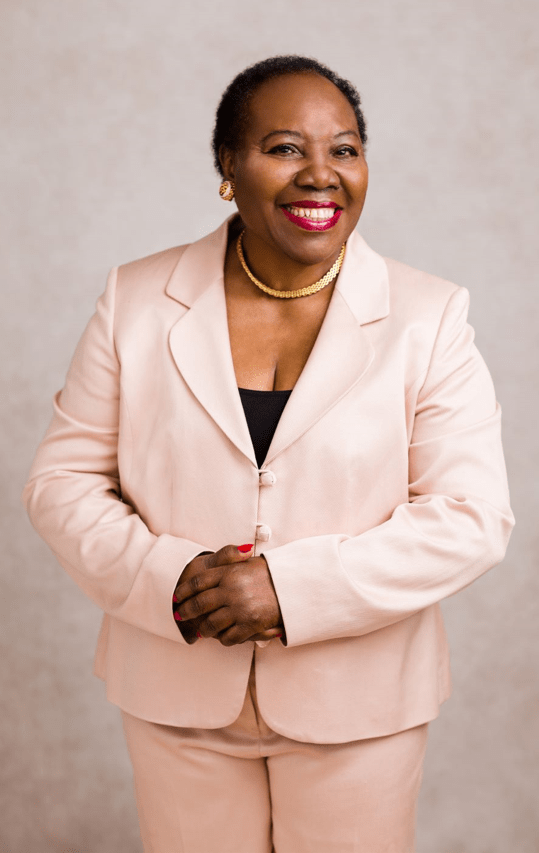
APPLY TODAY
100 Top Global Women Entrepreneurs – Global Woman Magazine
Our Journey in 12 Months:
Our Journey in 12 Months – Global Woman Magazine
5 Things That Show Money is Not Evil:
5 Things to Show That Money Is Not Evil – Global Woman Magazine
Global Man Magazine Page:
Global Woman, Global Man: Socials:
Global Woman Magazine (@global_woman.magazine) • Instagram photos and videos





